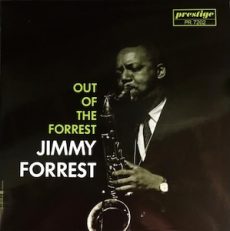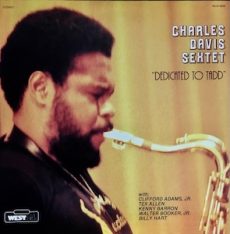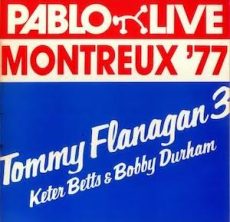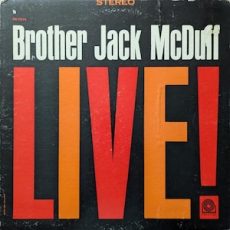
Requisites
One of the best things I love about jazz is the discovery of old and new songs, classic and new artists, and bands with which I am not familiar. On one occasion, I visited Evolution Home Theater in Buckhead for the Atlanta Audio Club meeting and had the pleasure to meet and hear jazz vocalist Lyn Stanley. She treated the members to selections from her sixth LP, London Calling: A Toast To Julie London (A.T. Music, LLC – ATM 3107), and discussed how the album was recorded. This 2019 two-record release pays homage to the talented actress, jazz, and pop vocalist with other surprises. My copy used in this report is the limited edition, numbered 33 1/3 Stereo audiophile release.
She’s heard here with nine exceptional musicians; Mike Garson (tracks: A1, A2, A4, B1, B4 to C3, D2 to D4), Christian Jacob (tracks: B3, D1) on piano, John Chiodini (tracks: A1, A2, A4, D3) on guitar, Chuck Berghofer (tracks: A3 to B3, C3 to D1, D3), Mike Valerio (tracks: A1, A2, B1, B5 to C4, D2) on double bass, Paul Kreibich (tracks: A1, A2, B1, B4, C1 to C3, D2) on drums, Aaron Serfaty (A1, A2, A4, B1, B3 to D2) on drums, percussion, Luis Conte (track: C1), Brad Dutz (tracks: A1, A2, B1, B3, B4, C1 to C3, D1, D2) on percussion. What is unique about the album is that each song was recorded only once without any formal arrangements whatsoever, only chord charts with the musical roadmap created by Lyn and the band during the working demo sessions.
Ms. Stanley opens the album with an upbeat rendition of the 1936 song, Goody Goody by Matty Malneck and Johnny Mercer. The lyrics depict a woman getting her revenge on the man who hurt and left her and has now had the tables turned on him. It first appeared on Julie Is Her Name, Volume 2 (1958). Lyn beautifully expresses the song’s lyrics with a lively rendition of the opening and closing melody. Chiodini, Garson, and Valerio also add three spirited concise comments that swing freely. Call Me Irresponsible by Jimmy Van Heusen and Sammy Cahn is from Julie’s LP, The End of The World (1963). This tune shows Lyn is an inspired stylist as she cruises smoothly through the melody with artful simplicity. Chiodini and percussionist Brad Dutz appear at the introduction and finale with Garson, Valerio, and Serfaty providing a solid foundation throughout her presentation.
Bye Bye Blackbird was composed in 1926 by Ray Henderson and Mort Dixon. This song appeared on Julie (1958) and is a slow-tempo duet by Lyn and Chuck. Both vocalist and bassist complement each other in one of the most beautiful renditions I have ever heard. Lyn’s voice is soft and sweet matching Chuck’s bass walking tenderly on a short statement with his sensitive support to her vocals into a tranquil finale. I Heard It Through The Grapevine by Barrett Strong and Norman Whitfield is a Soul classic. It was a hit for Gladys Knight & The Pips on Everybody Needs Love (1967), Smokey Robinson & The Miracles on Special Occasion, and Marvin Gaye on In The Groove (1968). Lyn’s sultry interpretation about hearing a lover’s plan to leave their significant other from someone else is an excellent illustration of how she transforms this straightforward melody into a chillingly unique performance. Chiodini, Garson, Berghofer, and Serfaty provide the slowly rocking beat for her to tell the story.
Side Two starts with a 1928 song from the pen of Irving Berlin, How About Me? Ms. London introduced it on Around Midnight (1960) and the lyrics describe a display of regret and sadness for the loss of someone loved. The tempo moves to a medium beat for Lyn who kicks off the solo sequence with flawless enunciation, followed by Garson and Chiodini who split a perfectly constructed chorus. Cry Me A River by Arthur Hamilton was Julie’s first and biggest hit, making its debut on Julie Is Her Name (1955). It remained her signature song throughout her singing career. Like Ms. London’s version, a trio release featuring Barney Kessel on guitar and Ray Leatherwood on bass, Lyn is accompanied by John and Chuck who are the lush foundation behind her deeply affecting vocals. Chiodini also gives a passionately poignant reading before the trio’s tender climax.
As Time Goes By is songwriter Herman Hupfield’s most well-known composition. It premiered in the Broadway musical, Everybody’s Welcome (1931), but is best known as the song featured in the romantic drama, Casablanca (1942). Julie’s rendition first appeared on Our Fair Lady (1965). The ensemble’s version possesses a Bossa Nova flavor by the musicians and Lyn infuses the lyrics with a cheerfully happy tone, resulting in a delightful vocal interpretation. Christian and John match Ms. Stanley with two mellow statements that move along sprightly off the easy-going drive of Chuck’s bass, Aaron’s drums, and Brad’s percussion.
The first of two vocals of the timeless classic Summertime (1934) by George and Ira Gershwin and DuBose Heyward concludes both records. The song first appeared in the opera, Porgy & Bess (1935). Heyward wrote the lyrics based on his 1925 novel Porgy and it is sung as a mother’s lullaby to her baby. To date, the standard has over twenty-five thousand recordings. It is beloved by jazz musicians and vocalists worldwide and considered one of the greatest songs ever written. Julie sang it on Feelin’ Good (1965). Lyn and the quintet preserve the spirit of the song as a seductive slow tempo southern styled blues and her delivery of the lyrics are alluringly tender and expressive. John and Chuck take the spotlight, leading the quintet through one enchanting chorus preceding the bewitchingly beautiful ending.
Side Three starts with the Latin pop song It’s Impossible by Mexican songwriter Armando Manzanero who recorded it under the original title Somos Novios for his album, Somos Novios…Siempre Novios (1968). It was composed as an instrumental ballad. American composer and songwriter Sid Wayne added English lyrics two years later and it became a huge hit for Perry Como as the title tune of his album (1970). Lyn presents the lyrics with tender beauty and warmth while serenaded by Chiodini who plays a Spanish guitar and has a gentle solo as well. Berghofer and percussionists Conte and Serfaty provide the lush background behind Ms. Stanley’s delicate delivery.
Richard Rodgers and Lorenz Hart’s popular song Blue Moon (1934) was composed as The Bad In Every Man for the crime film, Manhattan Melodrama with different lyrics. After the film’s premiere, Hart eventually wrote more romantic lyrics for the song, and it has been a successful standard since two 1949 hit records by Billy Eckstine and Mel Tormé. Blue Moon opens Julie’s album, Julie Is Her Name, Volume 2 and in the version presented here, Lyn sings the lyrics sensuously at a slower tempo than Ms. London, blending superbly with John who provides a marvelous interpretation enhancing one of the prettiest tunes on the album.
George and Ira Gershwin contribute another jazz classic with Lyn’s version of I’ve Got A Crush On You. This song appeared in two different Broadway musicals, Treasure Girl (1928) and Strike Up The Band (1930). The vocal became a standard after renditions by Ella Fitzgerald, Frank Sinatra, and Sarah Vaughan. Ms. London featured it on Nice Girls Don’t Stay For Breakfast (1967). Lyn captures the melody perfectly with a warm, sincere interpretation and the song is perfect for couples to slow dance to. Chiodini answers her vocals with an impressive chorus backed by Garson, Berghofer, Kreitbich, and Serfaty preceding an intimately romantic conclusion.
Light My Fire was the first huge hit for the American Rock band, The Doors, first appearing on their debut release (1967). The song was a collaborative effort by Jim Morrison, Ray Manzarek, Robby Kreiger, and John Densmore. It appeared on Julie’s final studio album of Pop and Rock songs, Yummy, Yummy, Yummy (1969)! Lyn’s sultry voice caresses each word of the lyric with sensuous pleasure to John’s Flamenco flavored guitar playing, Aaron’s incredibly perfect percussion work, and Mike’s passionately powerful piano cascades that speak voluptuously.
Sway by Norman Gimbel and Pablo Beltran Ruiz appeared on Julie London Sings Latin In a Satin Mood (1963). The rhythm section’s gentle beat serves as a backdrop through the seductively, poignant introduction. Lyn’s tender, expressive opening, and closing vocals are immensely touching as Chiodini’s thoughtfully constructed reading of velvety-soft phrases. Lyn treats us to two beautiful melodies next; Go Slow by Debbie Kronck and Russell Garcia which appeared on Julie’s album, Make Love To Me (1957) and Nice Girls Don’t Stay For Breakfast by Bobby Troup and Jerome Leshay!
On the first tune, her bewitchingly lusty lyrics are the spark for a romantic evening ahead with the assistance of Chiodini, Serfaty, and Dutz who provide the gentle rhythm as she sings. Mike Valerio’s bass sets the mood perfectly for Lyn’s swinging interpretation of the second song’s lyrics illustrating her skillful phrasing into a subtle climax. You, The Night and The Music by Arthur Schwartz and Howard Dietz, premiered in the Broadway musical comedy, Revenge With Music (1934). Julie sang this timeless standard on her album, Around Midnight (1960). Lyn paints a compelling portrait of the lyrics as a Tango, making it her own with a unique delivery to a superbly done danceable beat. Garson matches the vocalist with an exquisite contribution sustained by the rhythm section’s rich accompaniment.
Ev’ry Time We Say Goodbye (1944) is one of Cole Porter’s most beautiful compositions from The Great American Songbook. It first appeared in Billy Rose’s musical revue Seven Lively Acts. This is a trio number with Lyn opening with an enchantingly vocal presentation possessing a deep romantic affection for the lyrics. Her bandmates Chiodini has a voluptuously gorgeous guitar solo and Berghofer matches the delicate softness of her tone with a tender bass beat, resulting in a stunningly perfect rendition. The finale is the second version of Summertime, this time a duet with Lyn and Mike. This tune opens with the pianist’s very pretty introduction capturing the beauty and sensitivity of the song into Lyn’s vocals which weaves a spell of love and intimacy in a style distinctively her own, completing the stories she and her colleagues tell so convincingly.
Lyn and John Chiodini produced the album and the men responsible for the excellent engineering on all the songs except It’s Impossible are Rouble Kapoor and Steve Genewick. Spencer Garcia was the engineer on It’s Impossible. The mastering is by Bernie Grundman of Bernie Grundman Mastering. Allen Sides of Ocean Way Recording is the mixing engineer, and the record was pressed at RTI (Record Technology Incorporated). The sound quality is stunning with a very realistic soundstage of Lyn’s vocals and the musicians’ instruments. If you have a mid-fi or high-end audio system, the music emerges from your speakers vibrantly transporting you into the studio alongside Lyn and the musicians.
Now that I have had the pleasure of hearing Lyn Stanley, I look forward to picking up the other albums in her discography. London Calling: A Toast To Julie London is a record that has it all, superb vocals, engaging compositions, excellent musicians, and a great sound that should be heard in its entirety to be fully appreciated. For those in search of fine jazz singing, I offer for your consideration London Calling: A Toast To Julie London by Lyn Stanley. A great collection of standards and abundant music for the money that once heard should earn her lots of new fans!
~ Around Midnight (Liberty LRP 3164/LST-7164), Everybody Needs Love (Tamla SM-706/SS-706), Feelin’ Good (Liberty LRP-3416/LST-7416), In The Groove (Tamla T-285/TS-285), Julie (Liberty LRP 3096/LST 7004), Julie Is Her Name (Liberty LRP 3066/LST 7027), Julie Is Her Name, Volume 2 (Liberty LRP 3100/LST 7100), Julie London Sings Latin In a Satin Mood (Liberty LRP-3278/LST-7278), Make Love To Me (Liberty LRP 3060/LST-7060), Nice Girls Don’t Stay For Breakfast (Liberty LRP-3493/LST-7493), Our Fair Lady (Liberty LRP 3392/LST-7392), Special Occasion (Tamla S-290/TS-290), Somos Novios…Siempre Novios (RCA Victor MKL-1785/MKS-1785), The Doors (Elektra EKL-4007/EKS-74007), The End of The World (Liberty LRP-3100/LST-7300), Yummy, Yummy, Yummy (Liberty LST-7609) – Source: Discogs.com
~ As Time Goes By, Blue Moon, Bye Bye Blackbird, Ev’ry Time We Say Goodbye, Summertime, You, The Night and The Music – Source: JazzStandards.com ~ Call Me Irresponsible, Cry Me a River, Goody Goody, How About Me, I Heard It Through The Grapevine, It’s Impossible, I’ve Got a Crush on You, Light My Fire, Sway – Source: Wikipedia.org © 2021 by Edward Thomas Carter
More Posts: choice,classic,collectible,collector,history,instrumental,jazz,music

Requisites
Out Of The Forrest ~ Jimmy Forrest | By Eddie Carter
This morning’s spotlight shines on Jimmy Forrest, whom I first heard on the 1960 release, “Soul Battle,” with King Curtis and Oliver Nelson. Out of the Forrest (Prestige PRLP 7202) was his fifth outing as a bandleader and hit the stores in 1961. Jimmy was born in St. Louis, Missouri and built his reputation with the Count Basie, Duke Ellington, Andy Kirk, Fate Marable, and Jay McShann bands. Forrest demonstrated impressive versatility on the tenor sax, delivering energetic solos at brisk tempos. He also infused the lively pulse of bop at a medium beat, and he poured deep emotion into every ballad or standard. On this date, he’s supported by Joe Zawinul on piano, Tommy Potter on bass, and Clarence Johnston on drums.
My copy of the album is the 2023 Analogue Productions U.S. stereo audiophile reissue, matching the original catalog number. Side One opens with Bolo Blues, an original by Jimmy Forrest, which was one of his biggest hits. His relaxing introduction sets the melody off to a comfortable groove. The saxophonist has the solo spotlight to himself and delivers a thoughtfully crafted, laid-back interpretation, leading to the theme’s reprise and climax. The beat moves upward for the jazz and pop standard, I Cried For You, by Gus Arnheim, Arthur Freed, and Abe Lyman. Forrest’s brief introduction quickly segues to the ensemble’s medium theme. Jimmy goes to work first with a sparkling solo. Zawinul responds with a performance as refreshing as a cold drink on a hot day until the melody’s restatement and close.
I’ve Got a Right to Cry by Joe Liggins is a beautiful ballad beginning with a delicately expressive introduction by the quartet that continues as the melody unfolds. Jimmy, again, is the lone soloist and awakens poignant memories in a tenderly passionate interpretation before the theme’s return leads to a soft ending. This Can’t Be Love by Richard Rodgers and Lorenz Hart has long been a favorite of jazz musicians and vocalists. The trio’s introduction develops nicely into the ensemble’s lively theme. Forrest takes the first solo with stunning precision and enthusiasm on each note. Zawinul gets the last word and gives an excellent account before the theme is restated.
Side Two gets underway with By the River Sainte Marie by Edgar Leslie and Harry Warren. The rhythm section’s introduction segues into the quartet’s medium melody. Jimmy’s opening statement swings with a joyful spirit. Tommy takes a short, satisfying walk in his first solo next, then the leader makes his return for a concise comment leading to the finale. The quartet takes a nostalgic trip back in time with Yesterdays by Otto Harbach and Jerome Kern. Forrest’s gentle introduction sets things in motion for the foursome’s melody. Jimmy is the song’s only soloist, and his reading is very intimate, complemented by the rhythm section’s tender accompaniment ahead of a soft summation.
Crash Program by Jimmy Forrest and Clarence Johnston is off and running from the outset of the ensemble’s rapid theme. The saxophonist flies out of the gate with a flawlessly executed burst of speed. Joe continues soaring with infectious energy in the following solo. Johnston rounds things out with a swift finale, before the quartet returns to the theme and a quick exit. The album ends with a gorgeous rendition of That’s All by Alan Brandt and Bob Haymes. The pianist’s concise introduction sets the mood for Forrest’s sultry theme and elegantly phrased opening solo. Zawinul has a lovely interlude of tenderness preceding the leader’s return to take the song out softly.
Esmond Edwards supervised the initial session, and Rudy Van Gelder expertly managed the recording dials. Kevin Gray mastered this audiophile reissue from the original tapes at Cohearant Audio. The record was pressed on 180-gram vinyl and is dead silent until the music begins. The album’s sound quality is sensational, with an outstanding soundstage placing your sweet spot in the studio with the musicians. Out of the Forrest impresses not only from the music itself but also from the exceptional support of the ensemble. If you’re in the mood for a top-tier quartet and enjoy the tenor sax, I highly recommend Out of the Forrest by Jimmy Forrest for a spot in your library. If you’re a newcomer to his music, this album is a fine place to start your journey!
~ Soul Battle (Prestige PRLP 7223/PRST 7223) – Source: Discogs.com
~ I Cried For You, That’s All, This Can’t Be Love, Yesterdays – Source: JazzStandards.com
>© 2025 by Edward Thomas Carter
More Posts: choice,classic,collectible,collector,history,instrumental,jazz,music,saxophone

Requisites
Dedicated to Tadd ~ The Charles Davis Sextet | By Eddie Carter
The Charles Davis Sextet steps into this morning’s spotlight, showcasing the multi-instrumentalist on his second outing as a bandleader with Dedicated to Tadd (West 54 WLW 8006). My introduction to Davis came through three standout albums: “Breakthrough,” “Illumination,” and “Manhattan Project.” Davis has contributed as a sideman to more than 100 recordings, with some of jazz’s brightest talents; however, he is best known for his work with Archie Shepp and Sun Ra. This date features a stellar lineup: Tex Allen on trumpet; Clifford Adams, Jr. on trombone; Charles Davis alternates between baritone sax (A2, B3), soprano sax (A1, B2), and tenor sax (A3, B1); Kenny Barron on piano; Walter Booker, Jr. on bass; and Billy Hart on drums. My copy of the album is the 1979 U.S. stereo release.
Monking, the first of four originals by Charles Davis, gets off to a good start with the sextet’s engaging melody in unison. The fun begins as Tex leads with a lively opening solo. Clifford comes in next, laying down an infectious groove. Kenny takes over to deliver a performance executed with thoughtful, nuanced articulation. Charles glides effortlessly through the closing statement on soprano into the climax. Eastern Vibrations comes to life with the ensemble’s collective theme at medium speed. Allen steps forward first with a bright and captivating solo. Adams is especially impressive in the following reading. Barron tackles the third reading incisively, and then Booker seizes the moment in his first statement. Davis’s baritone brings it all home with unmistakable authority, leading to the theme’s reprise.
The group ventures onto Mexico Street next, beginning with Billy’s concise introduction ahead of the sextet’s rapid-fire theme. Tex sets the bar with a brisk and agile solo, paving the way for Clifford’s energetic interpretation. Charles’s tenor sax brings a thrilling intensity to the following statement. Kenny keeps things rolling in an electrifying performance, then Walter and Billy both make a brief comment preceding the ensemble’s robust exit. The title tune, Dedicated to Tadd, unfolds as a graceful ballad, opening with a soft piano prelude that ushers in the group’s beautiful melody. Davis draws out the song’s tenderness in the opening tenor sax statement. Barron infuses the following solo with sensitivity and finesse, before the ensemble’s gentle reprise of the theme and a touching ending.
The last two tracks come from the pen of Tex Allen, starting with the sextet’s introduction and medium melody to Love Gods. Charles gets the opening solo underway with a laid-back soprano interpretation. A brief piano interlude leads to Tex, who hits his target in the following interpretation. A second short piano break leads to the sextet’s closing chorus and finale. Sir Charles, the trumpeter’s tribute to Charles Davis, turns the beat upward one final time for the ensemble’s introduction and theme. Davis gets right to work on the baritone sax and turns in an opening solo that’s a sheer delight. Allen shines in a flawless performance, which in turn leads to Barron’s final statement preceding the sextet’s return to the theme, affording Adams a concise comment as the music gracefully fades away.
Roger Pola produced the album, and the executive producer was Pierre Bourdain. Allan Tucker was behind the dials as the recording engineer. The album’s sound quality is excellent, featuring a superb soundstage that places the musicians directly in the listener’s sweet spot with impressive fidelity. Dedicated to Tadd is an enjoyable album that showcases each artist at their best. If you’re a sax fan and are looking for something fresh to add to your library, I offer for your consideration Dedicated to Tadd by the Charles Davis Sextet on your next record-shopping trip! It shines a spotlight on a truly talented multi-instrumentalist deserving of wider recognition!
~ Breakthrough (Cobblestone CST 9011), Illumination! (Impulse A-49/AS-49), Manhattan Project (Bee Hive Records BH 7001) – Source: Discogs.com
© 2025 by Edward Thomas CarterMore Posts: choice,classic,collectible,collector,history,instrumental,jazz,music,saxophone

Requisites
Montreux ‘77 ~ Tommy Flanagan 3 | By Eddie Carter
I’ve admired and been a fan of pianist Tommy Flanagan for many years, so I was delighted to come across a delightful live album with his trio, Montreux ’77 (Pablo Live 2308-202). Tommy, a Detroit native, drew early inspiration from three legends: Nat King Cole, Art Tatum, and Teddy Wilson, as well as local greats Earl Van Riper and Willie Anderson. Throughout a remarkable forty-five-year career, he recorded thirty-six albums as a band leader and appeared as a sideman on over two hundred albums, many of which are regarded as jazz classics. Flanagan’s longest tenure was thirteen years as an accompanist and musical director to Ella Fitzgerald. Joining him on this date are Keter Betts on bass and Bobby Durham on drums. My copy of the album is the 1977 U.S. stereo release.
Barbados by Charlie Parker sets an upbeat tone to begin the trio’s set, with Flanagan’s introduction segueing into a vivacious melody. Tommy takes the lead with a spirited performance. Keter makes every note sparkle in the following solo, while Bobby’s steady rhythms anchor the soloists. The pianist returns for a rousing finale that draws enthusiastic applause from the audience. A pair of timeless jazz standards is up next. Some Other Spring by Arthur Herzog, Jr. and Irene Kitchings offers Flanagan the spotlight for a solo of exquisite tenderness. The trio then moved into “Easy Living” by Ralph Rainger and Leo Robin. Tommy remains the only soloist, and he gives a warm, sultry and deeply sincere performance, gracefully supported by Keter and Bobby into a soft, mesmerizing close.
Side Two begins with Flanagan’s gentle introduction to Star Crossed Lovers by Duke Ellington and Billy Strayhorn. The pianist enchants the listener in a beautiful solo of heartfelt lyricism until the beat moves upward for “Jump For Joy” by Duke Ellington, Sid Kuller, and Paul Francis Webster. After the trio’s melody swings in unison, Tommy begins the song’s only solo with infectious enthusiasm and an array of inventive ideas preceding a rousing reprise and finish. Dizzy Gillespie’s Woody ‘n’ You is off to the races from the start of Tommy’s introduction, leading to the trio’s vigorous theme. Flanagan forges ahead into the spotlight for the song’s only solo exuberantly until the ensemble reconvenes for a brisk closing chorus and a rousing ovation from the audience.
Blue Bossa by Kenny Dorham opens with the trio’s irresistibly rhythmic and lively theme. Tommy has the first say, and his fingers soar effortlessly across the keys. Keter follows, infusing the second statement with firm bass lines. The song culminates in a spirited conversation between Tommy and Bobby, leading to the trio’s danceable, infectious reprise and an enthusiastic ovation from the audience. Norman Granz produced the album, and Mountain Recording Studios was behind the dials. Val Valentin remixed this live date. The sound quality is very good except on the final track, Blue Bossa. During Keter Betts’s bass solo on this song, there’s a harshness or distortion that, while annoying, especially if you’re listening through headphones, doesn’t fully detract from the music.
Tommy Flanagan’s artistry was marked by clarity and elegance. His piano playing featured a delicate, lyrical touch and a remarkable knack for crafting nuanced phrases. Each of his improvisations unfolded with a natural, narrative flow, as he expertly walked the line between a tune’s structure and the freedom of creative expression. As an accompanist, Flanagan excelled and was attentive to his fellow musicians, always enhancing their sound. His understated comping offered a gentle harmonic support, letting soloists shine. When stepping forward with his own solos, his playing sparkled with wit, grace, and a distinctive sense of swing. Despite facing health challenges later in life, he continued to perform and record right up until his death at age seventy-one on November 16, 2001.
If you’re a fan of a piano jazz trio or live jazz recordings, I can’t recommend this album enough on your next record shopping trip. Montreux ‘77 by the Tommy Flanagan 3 allows listeners to take a delightful trip to the Montreux Jazz Festival without the need for luggage, a passport, or boarding a flight. Just set the record on your turntable, settle into your favorite chair with a preferred drink in hand, and immerse yourself in the moment!
Postscript: Montreux ‘77 by Tommy Flanagan 3 also appears in the eight-record box set, Norman Granz Presents The Montreux ’77 Collection.
~ Norman Granz Presents The Montreux ’77 Collection (Pablo Live 2620-107) – Source: Discogs.com
~ Easy Living – Source: JazzStandards.com
© 2025 by Edward Thomas Carter
More Posts: choice,classic,collectible,collector,history,instrumental,jazz,music,piano

Requisites
Live! ~ Brother Jack McDuff | By Eddie Carter
Three cherished family members inspired this morning’s discussion. My mom, Merlyn Carter, introduced my sister and me to Brother Jack McDuff during our Sunday dinners when we were younger; my uncles, Benjamin and Emmanuel Curry, often featured this album at their weekend jazz gatherings. Offered now for your consideration is his 1963 release and first concert performance, Live! (Prestige PRLP 7274/PRST 7274). (Prestige PRLP 7274/PRST 7274). This album captures the organist igniting a lively crowd at The Front Room in Newark, New Jersey, joined by his stellar quartet: Red Holloway on flute (track B1) and tenor sax (tracks A1 to A3, B2, B3), George Benson on guitar, and Joe Dukes on drums. My copy of the album is the 1964 U.S. stereo reissue.
The announcer’s introduction gets the set off to a roaring start with Rock Candy by Jack McDuff. The quartet’s infectiously spirited theme segues into Red’s vigorous opening statement. A swinging interlude is succeeded by George’s lively solo ahead of the foursome’s second interlude. Brother Jack states his case in fine form before the theme’s closing chorus, and Jack speaks to the crowd. The tempo eases as the foursome takes on George and Ira Gershwin’s It Ain’t Necessarily So. Benson and Dukes’ soulful warmth paves the way for McDuff’s down-home melody that whets the appetite for more. George pays his respects in the opening solo, then Red compliments him with a bluesy, slow-cooked groove, preceding McDuff’s theme reprise fading softly into Jack’s introduction of the next tune.
The group ushers us into Jack McDuff’s Sanctified Samba, launching the soulful gathering with an irresistible, bossa-nova tinged beat that calls the congregation to worship. George begins with a lively, melodic progression that builds to a satisfying climax. Jack delivers a stream of inventive ideas with characteristic ease next. Red wraps up the readings, blending bluesy flair with smooth, expressive lines before the group unites for a rousing conclusion. Side Two starts with Whistle While You Work, by Frank Churchill and Larry Morey from Disney’s “Snow White and the Seven Dwarfs.” Red opens the whimsical melody on flute, then steps aside for McDuff to take two happy solos with Benson’s cheery statement sandwiched in between them, leading back to the ending theme.
Jack shares the story behind his blues, A Real Good’un, and then the organist’s introduction segues into the quartet’s home cooking during the melody. Benson comes to the table first, serving up a platter of appetizing notes. After the first of several short interludes, Holloway brings the musical equivalent of red beans and rice to the table. McDuff adds a generous helping of fried chicken and mac and cheese before the group wraps up the song on a tasty note. The set concludes with Undecided, by Sid Robin and Charlie Shavers. The ensemble’s brisk introduction and catchy melody open the door for McDuff to deliver a swinging solo. Holloway maintains the momentum in a peppy interpretation. Benson plays with energetic finesse, then Dukes has the last word preceding the spirited closing chorus.
>Produced by Lew Futterman and Peter Paul, this live session captivates listeners from the very first note. Though the identity of the recording engineer remains a mystery, the album’s sound places listeners right in The Front Room, giving them the sense of being part of the lively crowd. The energy of the performances is infectious, and it’s nearly impossible not to snap your fingers, tap your feet or get up and dance along. Throughout his career, Jack McDuff masterfully fused hard bop, R&B, and soul jazz, drawing out the best from his fellow musicians at every turn. If you’re a jazz organ fan seeking an album that’s vibrant and uplifting, Live! by Brother Jack McDuff is a top recommendation for your library. It’s the perfect soundtrack to relax after a busy day or week, and is guaranteed to brighten your mood!
~ It Ain’t Necessarily So, Whistle While You Work – Source: Wikipedia.org
© 2025 by Edward Thomas Carter
More Posts: choice,classic,collectible,collector,history,instrumental,jazz,music,organ


